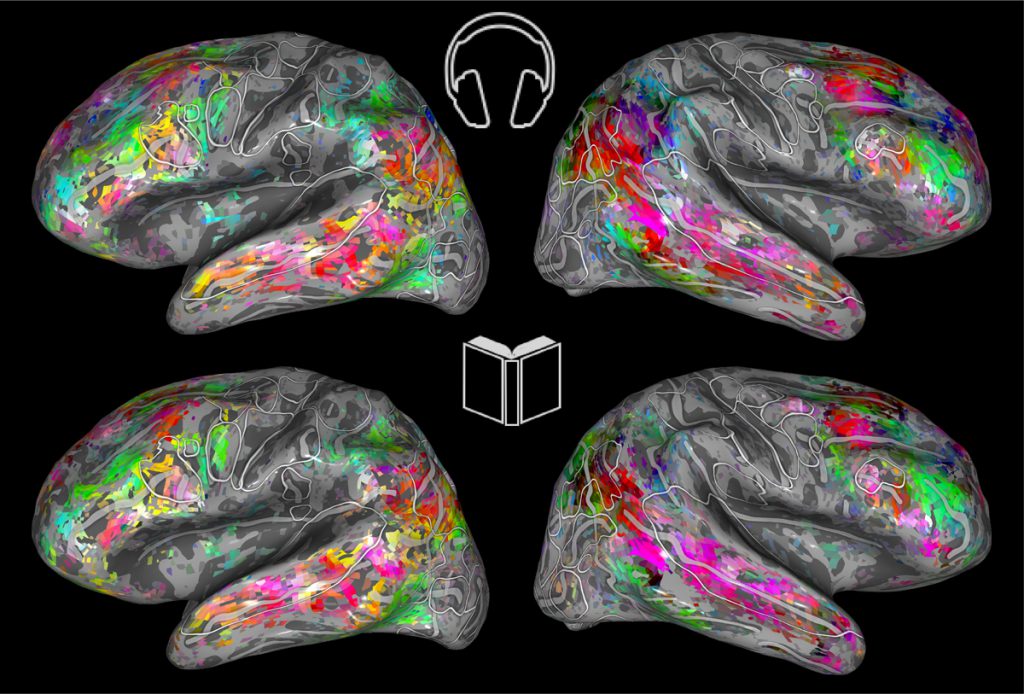Are Audible Books Good For Your Brain?
If you’ve ever found yourself wondering if Audible books are good for your brain, you’re not alone. In a world where technology is constantly changing the way we consume information, it’s natural to question the impact of audiobooks on our cognitive abilities. So, let’s dive into the fascinating world of Audible books and explore whether they truly have a positive effect on our brains.
When it comes to feeding our minds, Audible books offer a unique and convenient way to immerse ourselves in literature, non-fiction, and everything in between. With just a few taps on our mobile devices, we can transport ourselves to different worlds, absorb knowledge, and even improve our language skills. But do these digital stories actually benefit our brains, or are they just a modern distraction? Let’s uncover the truth behind the impact of Audible books on our cognitive functions and discover whether they are a brain-boosting tool or simply a form of entertainment.

Are Audible Books Good for Your Brain?
Audible books have become increasingly popular in recent years, allowing people to listen to their favorite books anytime, anywhere. But are these audio books actually good for your brain? In this article, we will explore the impact of Audible books on cognitive function and discuss the potential benefits they offer.
The Benefits of Audible Books
Listening to Audible books can have several positive effects on your brain. First and foremost, it improves language and vocabulary skills. By listening to well-narrated books, you expose yourself to a wide range of words and phrases, expanding your vocabulary and enhancing your language comprehension. This can be particularly beneficial for individuals learning a new language or struggling with reading difficulties.
Furthermore, Audible books can help improve memory and attention span. Engaging in a story or absorbing non-fiction content through audio stimulates brain activity, making it easier to remember information and stay focused. This can be especially helpful for individuals with ADHD or those who find it challenging to concentrate while reading traditional books.
In addition to these cognitive benefits, listening to Audible books is convenient and time-saving. With busy schedules and limited free time, many people find it difficult to dedicate hours to reading. Audible allows you to multitask and consume books while driving, exercising, or doing household chores. This accessibility makes it easier to incorporate reading into your daily routine and ensure that you continue to engage with literature.
Improved Comprehension and Comprehension Speed
One fascinating aspect of Audible books is the potential for improved comprehension and reading speed. When listening to a well-narrated book, you can absorb information at a faster pace compared to reading the same text. This can be particularly advantageous for individuals who struggle with slow reading or have difficulty processing written information. By listening to books, you can enhance your ability to understand and retain the content, ultimately improving your overall reading skills.
Moreover, Audible books provide an immersive experience that enhances the emotional connection to the story. The narrator’s tone, inflection, and pacing can bring characters to life and evoke powerful emotions. This emotional engagement can make the reading experience more enjoyable and memorable, further enhancing comprehension and retention.
Enhanced Accessibility and Inclusivity
Audible books have revolutionized access to literature for individuals with visual impairments or reading disabilities. By providing audio versions of books, Audible ensures that everyone can enjoy literature regardless of their physical or cognitive abilities. This inclusivity is crucial in promoting equal opportunities for education, entertainment, and personal growth.
Furthermore, Audible books offer a valuable resource for individuals with learning disabilities such as dyslexia. Listening to books can alleviate the challenges associated with reading difficulties, allowing individuals to fully engage with the content and develop a love for literature. This accessibility empowers individuals with learning differences to explore their interests and expand their knowledge.
In conclusion, Audible books have numerous benefits for your brain. They improve language and vocabulary skills, enhance memory and attention span, and provide a convenient and accessible way to engage with literature. Whether you’re a busy professional, a language learner, or someone with reading difficulties, Audible books can be a valuable tool for personal growth and enjoyment. So, go ahead and immerse yourself in the wonderful world of Audible books!
Key Takeaways: Are Audible Books Good for Your Brain?
- Audible books can improve reading comprehension and vocabulary skills.
- Listening to audiobooks can enhance focus and concentration.
- Audible books provide an immersive and engaging storytelling experience.
- Listening to audiobooks can stimulate imagination and creativity.
- Audible books offer a convenient way to consume literature on the go.
Frequently Asked Questions
Are you wondering if Audible books are good for your brain? Check out these frequently asked questions to learn more about the benefits of Audible books.
1. How do Audible books stimulate the brain?
Audible books provide a unique way to engage your brain and stimulate cognitive function. When you listen to an audiobook, your brain is actively processing and interpreting the information being presented. This helps improve your listening comprehension skills and strengthens your ability to focus and concentrate.
Additionally, Audible books often feature well-narrated stories that evoke emotions and spark your imagination. This emotional and imaginative engagement activates different regions of the brain, enhancing creativity and critical thinking. So, yes, Audible books can be highly beneficial for your brain.
2. Can Audible books improve memory and learning?
Absolutely! Audible books can have a positive impact on memory and learning. When you listen to an audiobook, you are exposed to new vocabulary, sentence structures, and storytelling techniques. This exposure helps expand your knowledge base and improves your overall language skills.
Furthermore, the act of actively listening to an audiobook requires concentration and focus, which are essential for retaining information. By engaging with the content, your brain forms stronger neural connections, leading to improved memory retention and recall. So, yes, Audible books can be a valuable tool for enhancing memory and learning.
3. Are Audible books beneficial for brain health in older adults?
Absolutely! Audible books can play a significant role in maintaining brain health in older adults. As we age, cognitive decline becomes a concern, but engaging with audiobooks can help keep the brain active and sharp.
Listening to Audible books exercises the auditory processing centers in the brain, which can help preserve cognitive function. Additionally, audiobooks provide mental stimulation and entertainment, reducing the risk of cognitive decline associated with boredom and social isolation. So, yes, Audible books can be highly beneficial for brain health in older adults.
4. Can Audible books enhance multitasking abilities?
Yes, Audible books can enhance multitasking abilities. Unlike reading a physical book, listening to an audiobook allows you to engage in other activities simultaneously. This means you can listen to a captivating story while exercising, cooking, or commuting.
This ability to multitask can improve your time management skills and productivity. It also provides a way to make mundane tasks more enjoyable and engaging. So, yes, Audible books can be a fantastic tool for enhancing multitasking abilities.
5. Are there any potential downsides to listening to Audible books?
While Audible books have numerous benefits, it’s important to be aware of potential downsides. One possible drawback is that listening to audiobooks may not offer the same level of active engagement as reading a physical book. Some studies suggest that physically interacting with a book can enhance comprehension and memory.
Additionally, it’s crucial to choose high-quality audiobooks with clear narration to ensure an enjoyable listening experience. Poorly narrated audiobooks may hinder comprehension and overall enjoyment. So, while Audible books have many advantages, being mindful of these potential drawbacks can help you make the most of your listening experience.
Reading vs Listening to Audiobooks (What science says about it)
Final Thoughts: Are Audible Books Good for Your Brain?
After exploring the question of whether Audible books are good for your brain, it is evident that they offer numerous benefits for cognitive development and overall mental well-being. Listening to audiobooks engages the brain in a unique way, stimulating imagination, enhancing comprehension, and improving language skills.
One of the key advantages of Audible books is their accessibility. They allow individuals to enjoy literature even when they are busy with other tasks or have difficulty reading traditional books. Whether you’re driving, exercising, or doing household chores, Audible books provide a convenient way to consume literature and expand your knowledge.
Moreover, audiobooks offer a multi-sensory experience by combining the power of storytelling with the auditory sense. This engagement of multiple senses enhances memory retention and deepens emotional connections to the narratives. Additionally, audiobooks can introduce listeners to different accents, dialects, and intonations, broadening their cultural understanding and linguistic capabilities.
In conclusion, Audible books are indeed good for your brain. They provide a gateway to the world of literature, engaging your imagination, improving language skills, and offering a convenient way to enjoy books. So, whether you’re a book lover or someone looking to enhance their cognitive abilities, give Audible books a try and embark on a journey of literary exploration that nurtures your brain and enriches your life.






